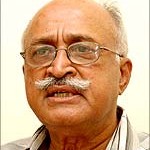Losing Game In Sri Lanka
By R Hariharan -December 3, 2013
 Prime Minister Manmohan Singh cancelled his Sri Lanka visit for the Commonwealth summit that concluded last week due to political pressure from Tamil parties. Is it a serious diplomatic error on the part of the UPA Government? Should regional parties decide India’s foreign policy? How will it impact the India-Sri Lanka ties?
Prime Minister Manmohan Singh cancelled his Sri Lanka visit for the Commonwealth summit that concluded last week due to political pressure from Tamil parties. Is it a serious diplomatic error on the part of the UPA Government? Should regional parties decide India’s foreign policy? How will it impact the India-Sri Lanka ties?
Why did Prime Minister Manmohan Singh choose to stay away from the Commonwealth Heads of Government Meeting (CHOGM) that concluded last week in Colombo? Was it a gesture to save the political fortunes of the Congress in Tamil Nadu after a vigorous campaign against CHOGM was whipped up? Was it an attempt to register India’s solidarity with international protests against Sri Lanka’s alleged war crimes and human rights violations during the Eelam War? Or, was it to show his unhappiness at President Mahinda Rajapaksa not keeping up his promises to implement the 13th Amendment in full and resume the political process with Tamils? There are no answers, only deafening silence.
None of these reasons seem to have figured in the Prime Minister’s letter informing Rajapaksa of his decision to stay away from CHOGM. It would be unfair to hold the Ministry of External Affairs (MEA) responsible for the CHOGM mess; the MEA was clear that India should attend the meeting. In fact, External Affairs MinisterSalman Khurshid’s vocal support for attending CHOGM drew protests from fringe elements in Tamil Nadu. So not attending the meeting was clearly a decision of the Prime Minister, regardless of the speculation on how it came about.
However, CHOGM is not the issue. It is perhaps the most inconsequential grouping, a colonial club where Britain can reminisce on how the sun set on the empire without feeling guilty about it. Only 27 heads of governments of 53 member-countries chose to attend the Colombo meeting. This is not unusual; but still it provides an opportunity to build leadership relations through informal meetings and exchange views on critical issues.

